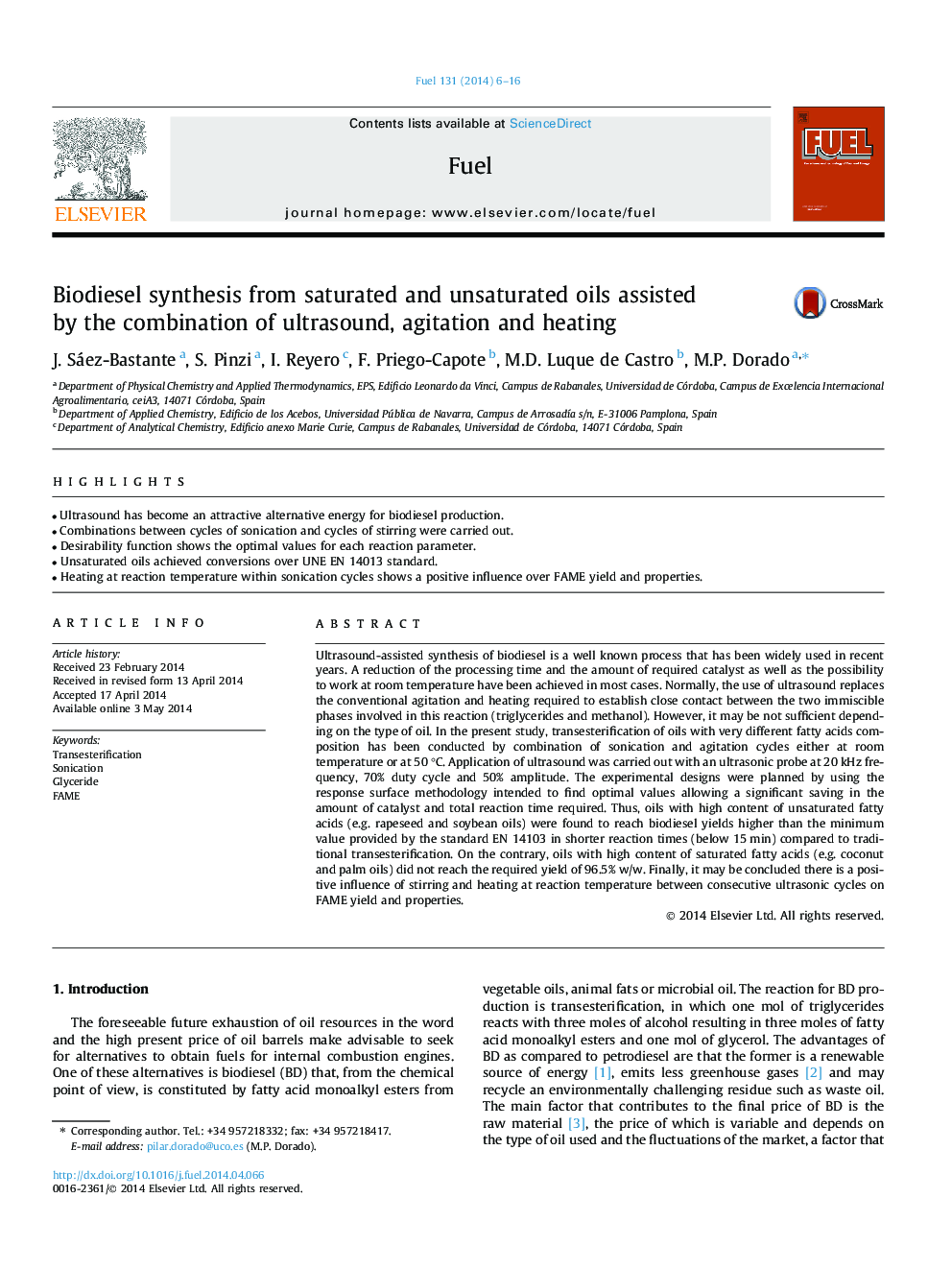| کد مقاله | کد نشریه | سال انتشار | مقاله انگلیسی | نسخه تمام متن |
|---|---|---|---|---|
| 206216 | 461150 | 2014 | 11 صفحه PDF | دانلود رایگان |
• Ultrasound has become an attractive alternative energy for biodiesel production.
• Combinations between cycles of sonication and cycles of stirring were carried out.
• Desirability function shows the optimal values for each reaction parameter.
• Unsaturated oils achieved conversions over UNE EN 14013 standard.
• Heating at reaction temperature within sonication cycles shows a positive influence over FAME yield and properties.
Ultrasound-assisted synthesis of biodiesel is a well known process that has been widely used in recent years. A reduction of the processing time and the amount of required catalyst as well as the possibility to work at room temperature have been achieved in most cases. Normally, the use of ultrasound replaces the conventional agitation and heating required to establish close contact between the two immiscible phases involved in this reaction (triglycerides and methanol). However, it may be not sufficient depending on the type of oil. In the present study, transesterification of oils with very different fatty acids composition has been conducted by combination of sonication and agitation cycles either at room temperature or at 50 °C. Application of ultrasound was carried out with an ultrasonic probe at 20 kHz frequency, 70% duty cycle and 50% amplitude. The experimental designs were planned by using the response surface methodology intended to find optimal values allowing a significant saving in the amount of catalyst and total reaction time required. Thus, oils with high content of unsaturated fatty acids (e.g. rapeseed and soybean oils) were found to reach biodiesel yields higher than the minimum value provided by the standard EN 14103 in shorter reaction times (below 15 min) compared to traditional transesterification. On the contrary, oils with high content of saturated fatty acids (e.g. coconut and palm oils) did not reach the required yield of 96.5% w/w. Finally, it may be concluded there is a positive influence of stirring and heating at reaction temperature between consecutive ultrasonic cycles on FAME yield and properties.
Journal: Fuel - Volume 131, 1 September 2014, Pages 6–16
